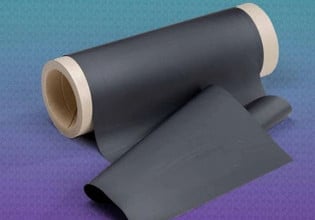The Electric Power Research Institute (EPRI) and the Natural Resources Defense Council (NRDC) released a comprehensive assessment that finds that widespread use of plug-in hybrid electric vehicles (PHEVs) in the United States could reduce greenhouse gas (GHG) emissions and potential for improve ambient air quality. The research measures the impact of increasing numbers of PHEVs between 2010 and 2050, including the nationwide environmental impact of potentially large fleets that would use electricity from the grid as their primary fuel source.
Among the study’s key findings: widespread adoption of PHEVs can reduce GHG emissions from vehicles by more than 450 million metric tons annually in 2050 – equivalent to removing 82.5 million passenger cars from the road; there is an abundant supply of electricity for transportation; a 60% U.S. market share for PHEVs would use 7 to 8% of grid-supplied electricity in 2050; and PHEVs can improve nationwide air quality and reduce petroleum consumption by 3 million to 4 million barrels per day in 2050.
The analysis is the first to combine detailed models of the U.S. electric system and transportation sector with sophisticated atmospheric air quality models – accounting for the future evolution of both sectors in technological advances, electricity load growth and capacity expansion.
"This research accelerates our understanding of the interplay of emissions from various sources," said Steve Specker, EPRI President and Chief Executive Officer. "We now see that widespread use of PHEVs could expand the fuel options in our transportation sector and at the same time yield net benefits to our environment."
The EPRI-NRDC study represents what is claimed to be the most comprehensive analysis of the potential reductions of global warming and other emissions from wide-scale introduction of PHEVs over time. The study addresses the impact that lower-emitting electricity generation can have for increasing these benefits.
"NRDC believes that a combination of more efficient vehicles, improved battery technology, and a lower-emitting electric power plant fleet can produce substantial reduction in global warming pollution from both the electric power and the transportation sectors, said David Hawkins, Director of NRDC’s Climate Center. "Our results show that PHEVs recharged from low- and non-emitting electricity sources can decrease the carbon footprint in the nation’s transportation sector."
"The EPRI-NRDC study demonstrates that plug-in hybrid electric vehicles can contribute significantly to the national effort to reduce greenhouse gas emissions," said John E. Bryson, Chairman and CEO of Edison International. "With public support, it is likely that someday millions of Americans will fill up their vehicles at the plug instead of the pump, saving money and protecting the environment."






